Ramadan is both a Holy and Spiritual month, where observant Muslims dedicate themselves to religious thoughts. This year, Ramadan begins on Thursday 23rd April and will end on Saturday 23rd May. During this time, Muslims not only abstain from food, drinking and smoking from dawn to dusk, but in general practice restrain from all activities or behaviours that are not compatible with Islamic values. Levels of observance of Ramadan will vary in different countries and cultures, but most Muslims will conform to some extent of the fast.

Non-Muslims aren’t expected to keep the fast themselves – according to tradition, even Muslim travellers are exempt. But at best, eating or drinking in front of people who are probably fasting isn’t the best idea, and at worst you can find yourself slapped with a hefty fine!
Muslims will break their fast at sundown also called “Maghrib” which is the prayer time for sundown. This time differs from country to country and region to region, with the timings moving forward every day. As sunset and sunrise times change this affects the time they can break the fast each day.

All services in these countries will come to a standstill which means no transport or shops open during the time of breaking the fast.
All services will re-commence after the prayer times which is approx 1 – 2 hours after sundown. So travelling to the Middle East during the month of Ramadan you can expect delays and closures.
Getting There
Onboard Emirates, Etihad, and Qatar flights you can expect it to be “business as usual” during the period of Ramadan. Alcohol should be served to all destinations except Saudi Arabia, which is the case year-round.
While it’s business as usual onboard, that’s not the case on the ground.
 Emirates
Emirates
Emirates is the only one which doesn’t adjust their policies during Ramadan, including in their lounges in Dubai.
Emirates provide an Iftar service for customers travelling during Ramadan. The Iftar boxes will allow those observing Ramadan to break their fast with a nutritious and balanced meal. Emirates also utilises a unique tool to calculate the correct timings for Imsak (the time to commence fasting) and Iftar while in-flight. It calculates the exact Ramadan timings using the aircraft’s longitude, latitude and altitude; ensuring the greatest level of accuracy possible while onboard. When the sun sets, passengers will be informed of the Iftar time by the captain.
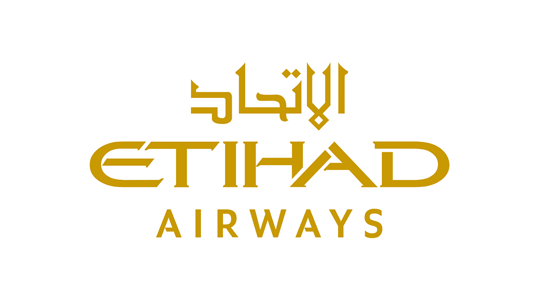 Etihad
Etihad
Etihad, on the other hand, will not display alcohol in their foreign lounges during daylight hours, and won’t serve any alcohol during daylight hours in their Abu Dhabi lounges.
 Qatar Airways
Qatar Airways
Qatar Airways, won’t be serving any alcohol in their lounges throughout Ramadan. So if you want any alcohol, you may have to wait until you’re on the plane!
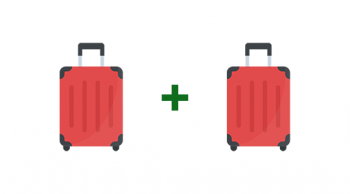 Baggage
Baggage
Baggage allowances vary between airlines and your ticket will indicate your baggage allowance. Some airlines allow an increased baggage allowance during Umrah (Islamic pilgrimage to Mecca). However, they can be very strict when it comes to overweight baggage and charges for excess baggage at airports can be very high.
As a general rule, most airlines allow 2 pieces of baggage with 23kg weight each, anything over this will be charged heavily. This can also result in extra waiting time for luggage and the possibility that the flight doesn’t accept any more excess bags if you are one of the last to check in. So bear this in mind when planning your trip.
When You’re There
Here are a few of the notable countries and how they operate during Ramadan!
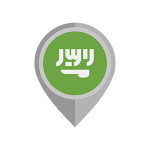 Saudi Arabia
Saudi Arabia
Ramadan is observed intensively throughout Saudi, and public observance of the fast is mandatory. Non-Muslims are not expected to fast behind closed doors. However, mutawwa (religious police) patrol the streets to enforce the abstinence from Non-Muslim activities. Restaurants and other food providers, such as shops are closed during daylight hours. Some top-end hotels occasionally offer screened eating areas, but check ahead! Evenings will be very lively, as Muslims come together to eat, pray and shop. So just bear that in mind!
There are two different pilgrimages for Saudi Arabia, one of these being Umrah, which is a long season starting from Dec till the End of Ramadan which is 15/17th June this year. During this period, flights will be busy, as passengers will be travelling to perform Umrah and some Middle Eastern airlines might have a different policy for boarding/leaving the aircraft to ensure the people queues are managed correctly.
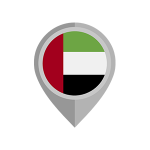 UAE
UAE
Regardless of your religion, everyone is required to fast in public. In most large hotels, there will be room service and screened eating areas away from public view. Clubs, live music, and camel racing cease for the month and bars do not open until sunset. However, shopping malls are reportedly packed after dark with widespread promotions and sales!
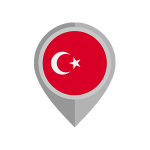 Turkey
Turkey
Ramadan in Turkey holds difficulty for most travellers. In the larger cities and along the coast, limited restaurants and shops are open for non-Muslims. Heading further east, there are limited conveniences until sundown. In Istanbul, crowds gather for iftar, with readings from the Qu’ran and music concerts.
General Tips
 Avoid eating, drinking, chewing gum or smoking in public during the daytime (including in your car). In some Muslim countries, it’s actually illegal to eat and drink in daylight during Ramadan.
Avoid eating, drinking, chewing gum or smoking in public during the daytime (including in your car). In some Muslim countries, it’s actually illegal to eat and drink in daylight during Ramadan.
Pregnant, nursing women and young children are exempt from the provisions, but discretion should be exercised.
Some restaurants will close or operate amended opening hours during Ramadan.

Restaurants that cater to tourists may open as usual but hotels will sometimes use screens to keep western diners sectioned off from Islamic guests.
Take extra care of your clothing during the holy month. Ensure you dress modestly as standards may be policed even more carefully than usual.
Business hours may become shorter in the day.

Avoid driving or travelling around town just before sunset as it can get quite hectic!
Public transport continues as normal (airports, taxis and Metro). Apart from during “Maghrib”. Some local shopping malls will extend their hours at night to accommodate those fasting; this may result in some night transport.
The end of Ramadan is usually a busy period in Muslim countries as people traditionally visit their families to celebrate Eid-ul-Fitr, the three-day festival marking the end of the fast. Plan ahead if travelling at this time as roads can be congested and flights around this time are often fully booked.




